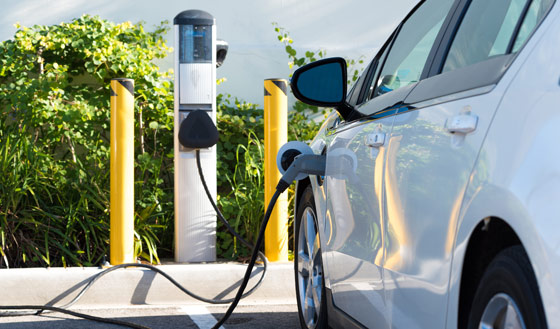If you follow economics in any capacity, you’ve no doubt heard of Paul Krugman. Krugman, the 2008 winner of the Nobel Prize for Economics, is an influential Keynesian-leaning, tax-and-spend proponent. And when we say spend, we really mean it. He has argued that one of the reasons for our second Great Depression of the 1930’s is that government didn’t spend enough to stimulate the economy.
In 2008, Paul Krugman, drawing on his in depth knowledge of the mistakes of the Great Depression, worried that the stimulus package was simply not big enough to offset the threat of deflation:
I’d like to see it bigger. I understand that there’s difficulty in actually spending that much money, and I–they’re also afraid of the–of the T word. They’re afraid of a trillion dollar for the two-year number.
I think he was getting it right that the risks of being too small are much bigger than the risks of being too big. Nonetheless, I am actually concerned that this thing is not going to be really big enough.
However, Krugman stopped short of suggesting that we were headed towards a new depression:
The only reason that we’re not headed for Great Depression II — at least I don’t think we are — is that we think we learned a few things since then. But this is big stuff. This is the worst thing, you know, in two life times.
While our readers may find this line of thinking misguided – you know, spend more when you’re completely broke and the free market system is trying to correct itself and reach a state of equilibrium because of out of control, manufactured growth due to the Fed’s cheap money policies of the last decade – there are an overwhelming amount of policy makers in high-up government positions that fully agree with Mr. Krugman’s ideas. Ben Bernake for one, Timothy Geithner is another, and the policy-maker-in-chief, arguably the most influential Keynesian out there, President Barack Obama.
According to Krugman’s 2008 assessment, we would be able to avoid a Great Depression. After having spent, literally, trillions of dollars bailing out failing financial institutions in an effort to boost private sector lending and government employment projects, we find ourselves in the same situation two years later.
Jobs are stagnant and ready to fall off a cliff again, bank lending is still locked up, millions of people are delinquent on their home mortgages, GDP growth is set to go negative in the second half of 2010, and more than half of state governments are in the red.
It looks like the trillions of dollars in stimulus and bailouts just weren’t enough, and Krugman can now argue that had we spent more, we would have avoided this mess (even though we did, actually, hit the “T” numbers he said the government was afraid to do). However, it is important to consider that in the last decade we blew a massive bubble, in the multiple trillions of dollars across sectors like housing and other asset classes (even employment wages) because of cheap money and pulled forward demand. We are now paying the price for that excessive, forward-looking spending and the system is deleveraging. It is cleaning out all of the bad, un-serviceable debt. In order to offset the collapse in our debt-based system, we’d need many more trillions of dollars, something that is simply not feasible, politically or fiscally.
Krugman is now changing his tune on the idea that we have entered a depression, something we’ve warned our readers about for over a year now.
And though it has not yet gone mainstream, and likely won’t until after our the November 2010 election, the fact is, we are and have been in what trend forecaster Gerald Celente has dubbed the Greatest Depression.
This is mind boggling, actually, because the policy ideas of Mr. Krugman, adopted and set into motion by well known great depression historian and Chairman of the Federal Reserve Ben Bernanke, seem to have failed. These economists are Great Depression historians, and somehow, their policy ideas didn’t work!
And because it’s an election year, many elected officials are backing off the idea of more spending, as evidenced by the recent rejection of a $50 billion bailout package for unemployed Americans, though we won’t completely rule out further stimulus/bailout spending if and when the economy and stock markets get hammered later this year.
According to Paul Krugman, the United States is entering the third depression in our history:
Recessions are common; depressions are rare. As far as I can tell, there were only two eras in economic history that were widely described as “depressions†at the time: the years of deflation and instability that followed the Panic of 1873 and the years of mass unemployment that followed the financial crisis of 1929-31.
…
We are now, I fear, in the early stages of a third depression. It will probably look more like the Long Depression than the much more severe Great Depression. But the cost — to the world economy and, above all, to the millions of lives blighted by the absence of jobs — will nonetheless be immense.
And this third depression will be primarily a failure of policy. Around the world — most recently at last weekend’s deeply discouraging G-20 meeting — governments are obsessing about inflation when the real threat is deflation, preaching the need for belt-tightening when the real problem is inadequate spending.
The fact is, we entered this depression at least two years ago – some even argue it started around the time of the internet bubble crash of 2002 and our economy was held in place by Federal Reserve monetary policy. If this depression did start in 2002, then a case can be made that loose monetary and fiscal policy didn’t just fail under Barack Obama, but George W. Bush as well. The Keynesians have been trying to bail the system out for almost a decade and the only thing they succeeded in doing is kicking the can down the road.
Those same interventionist policies will continue to be a failure going forward.
As hard as it will be, and as much pain as it will cause to individual Americans, we are going to have to take it.
We’ve overspent. We’ve over extended our credit. We’ve lost our productive capacity. We’ve become apathetic and lazy.
After one of the largest booms in history, the pendulum must swing the other way. We will, regardless of all the hope in the world, experience one of the largest contractions the world has ever seen. It will take decades for America to fully recover.
In his book The Crash of 2008 and What it Means, George Soros opined that because the system was in a state of contraction, or deflation, we must induce the opposite (print lots of money) and then reduce it (to avoid hyperinflation). We’ve tried this, and thus far, it hasn’t work, though Mr. Soros would argue that it has. Had it worked, we’d likely be entering a period of serious inflation right now. The only thing that inducing the opposite of deflation has done in the last couple of years is kept the system afloat and prevented a total implosion.
Our view is that up until the Crash of 2008 we were in a period of inflation, some have even argued hyperinflation (the dollar lost roughly 40% of its value since 2000), and what the free market system is attempting to do now is induce the opposite, which is contraction, deflation and a cleaning out of excess.
Naturam expellas furca, tamen usque revenit.
-Horace (65-8 BC)(You may drive nature out with a pitchfork, she will nevertheless come back)
Make no mistake, you are living through a Great Depression right now.








0 Comments